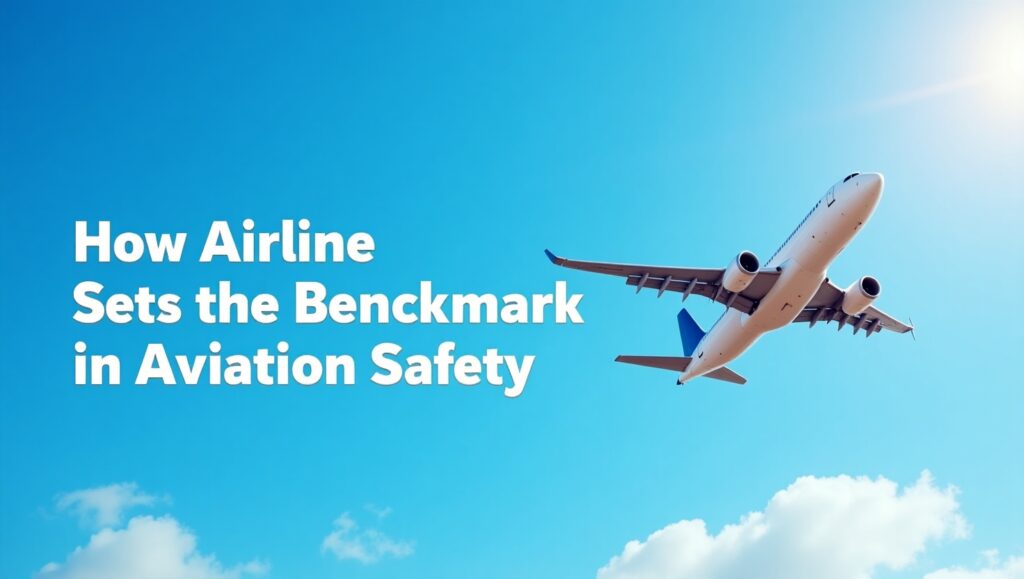In the aviation industry, safety is not just a priority—it’s the foundation of every operation. As air travel expands across Nepal, the demand for strict and reliable safety measures has never been more essential. Buddha Air, one of Nepal’s leading domestic airlines, has become a trusted name in aviation safety by embracing international standards, cutting-edge technology, and a deeply rooted safety culture.
A Culture of Safety at Every Level
At Buddha Air, safety is more than a compliance requirement—it’s a core value. From senior leadership to ground staff and flight crews, everyone is committed to ensuring safe operations. This culture of safety influences all aspects of decision-making and daily practices.
The airline implements a proactive Safety Management System (SMS) that identifies and mitigates potential risks before they can impact operations. This system includes:
- Regular internal and external safety audits
- Comprehensive risk assessments
- Ongoing performance monitoring
- Continuous updates to reflect new industry insights and technological developments
Buddha Air treats safety as a living system—one that evolves to meet new challenges in modern aviation.
Modern Fleet, Smart Management
Buddha Air operates a well-maintained fleet of aircraft, primarily consisting of ATR 72 and ATR 42 models—known globally for their safety, efficiency, and performance in challenging terrains like Nepal’s.
However, owning a modern fleet is only part of the equation. The airline also leverages advanced fleet management systems to enhance both operational efficiency and safety. These systems help monitor aircraft health, schedule preventive maintenance, and ensure timely inspections.
World-Class Pilot Training Programs
Pilots play a vital role in aviation safety, and Buddha Air ensures they are equipped with the best tools and training. The airline has heavily invested in comprehensive pilot training programs designed to prepare flight crews for every possible scenario.
Key components of their training include:
- Advanced Flight Simulators: These simulate real-world flying conditions—such as poor weather or emergency scenarios—so pilots can build critical decision-making skills in a controlled environment.
- Regular Refresher Courses: All pilots, regardless of experience, participate in ongoing training to stay current with the latest procedures and protocols.
- Flight Panel Training (FPT): This program familiarizes pilots with every detail of cockpit controls and systems, ensuring they are fully prepared for both normal operations and emergency situations.
Aircraft Maintenance: Precision and Proactivity
Reliable maintenance is crucial to safe flying. Buddha Air operates a state-of-the-art maintenance hangar, fully equipped with modern tools, diagnostic equipment, and certified technicians.
Key maintenance practices include:
- Non-Destructive Testing (NDT): This advanced inspection technique detects hidden flaws in aircraft components without dismantling them, allowing early intervention.
- Daily Flight Inspections: Each aircraft undergoes a detailed inspection by certified engineers and flight crews every morning before departure. These checks cover engines, avionics, hydraulics, and cabin systems to ensure everything is flight-ready.
- Genuine Spare Parts: Only authentic, manufacturer-approved parts are used, ensuring maximum reliability and compliance with safety standards.
Harnessing Technology for Safer Skies
Buddha Air is at the forefront of adopting digital technologies to enhance flight safety. One of the most impactful tools in use is Flight Data Monitoring (FDM).
FDM continuously records data from every flight, including:
- Aircraft performance metrics
- Pilot handling behavior
- Route and weather conditions
A specialized safety team analyzes this data to detect trends, assess pilot performance, and identify areas for improvement. This allows the airline to correct deviations from standard operating procedures and improve future flight planning—creating a continuous loop of learning and safety enhancement.
Compliance with Global Safety Standards
Buddha Air’s operations are fully aligned with both national and international aviation regulations. The airline strictly adheres to the safety guidelines set by:
- The Civil Aviation Authority of Nepal (CAAN)
- The International Civil Aviation Organization (ICAO)
- Other global aviation regulatory bodies
This ensures that Buddha Air meets the highest benchmarks in safety and quality, and remains up to date with evolving international standards.
Conclusion: Leading by Example in Nepal’s Skies
Buddha Air has set a new benchmark for aviation safety in Nepal, combining a strong safety culture with world-class training, modern fleet management, advanced maintenance techniques, and data-driven technologies.
As air travel continues to grow in the region, Buddha Air remains committed to providing a safe, reliable, and reassuring experience for every passenger. Whether you’re flying to the mountains or across the plains, you can trust that safety is at the heart of every Buddha Air flight.

